Fruits have always been an essential part of our diet, offering nutrients, flavors, and diversity. Among them, fruits that start with K hold a unique place. From tropical delights to lesser-known gems, these fruits are bursting with health benefits and flavor profiles worth exploring. Below is a comprehensive guide to fruits that start with K, their features, and why they deserve a spot in your kitchen.
Kiwifruit
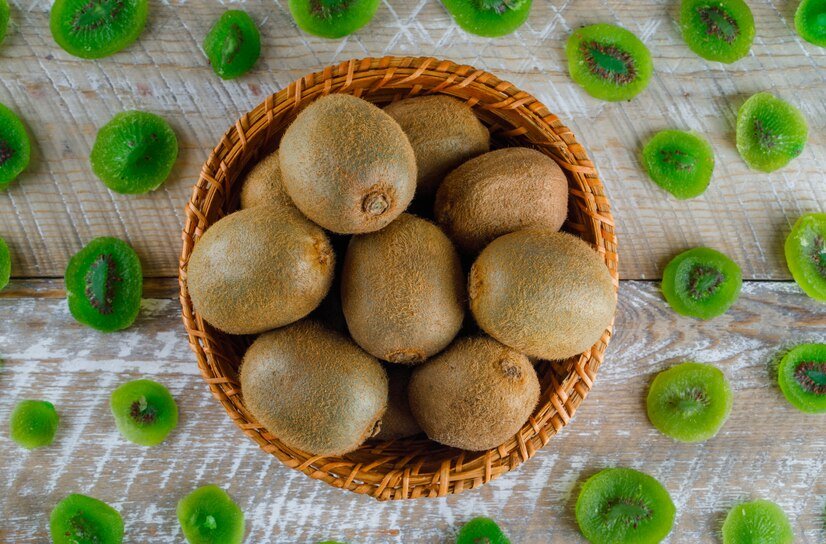
The kiwifruit, also called kiwi, is perhaps the most famous fruit beginning with K. Its fuzzy brown skin encloses bright green flesh speckled with tiny black seeds. Known for its tangy-sweet flavor, this fruit is packed with vitamin C, vitamin K, and antioxidants.
Health Benefits:
- Boosts immunity with high vitamin C levels.
- Supports digestion through dietary fiber.
- Reduces oxidative stress due to its antioxidant properties.
Including kiwi in smoothies, fruit salads, or desserts adds a vibrant and refreshing touch.
Kumquat

Native to Southeast Asia, kumquat is a small, oval-shaped citrus fruit that stands out for its unique taste. Unlike other citrus fruits, kumquats are eaten whole, including their thin, edible peel.
Health Benefits:
- Provides a good source of fiber, vitamin C, and potassium.
- Helps manage cholesterol levels.
- Strengthens the immune system.
Its tangy-sweet flavor makes it perfect for marmalades, pickles, or as a garnish in cocktails.
Kabosu

Hailing from Japan, the kabosu fruit is a green citrus often used in Japanese cuisine. Resembling a lime, its juice is less tart and slightly sweeter. Kabosu is mainly used for its aromatic zest and juice.
Health Benefits:
- Aids in digestion and appetite stimulation.
- Enhances skin health with its vitamin C content.
- Low in calories, making it ideal for weight management.
Kabosu juice enhances grilled fish, soups, and sauces, offering a hint of freshness.
Kaffir Lime
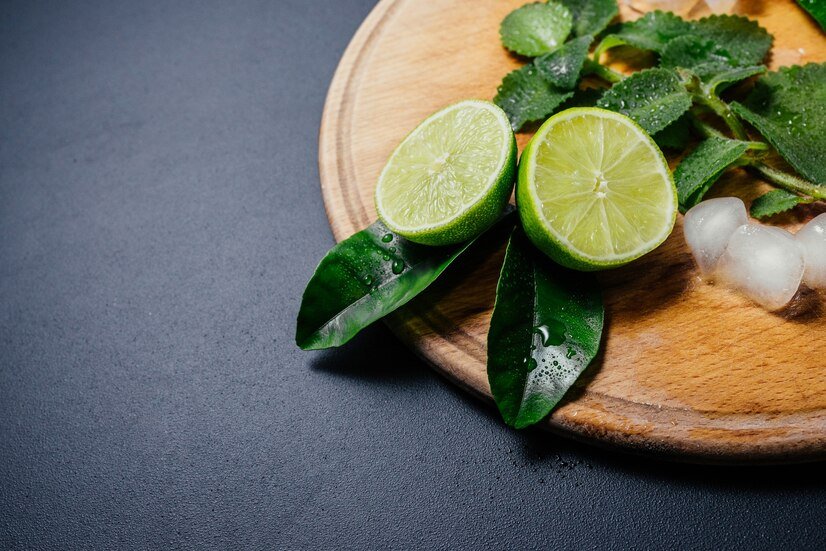
Known for its fragrant leaves and bumpy green rind, kaffir lime plays a significant role in Southeast Asian cooking. The fruit itself is small and quite tart, primarily valued for its essential oils and zest.
Health Benefits:
- Enhances oral health due to antibacterial properties.
- Detoxifies the body by promoting liver health.
- Improves digestion with its aromatic compounds.
Kei Apple

Native to southern Africa, the kei apple is a bright yellow fruit with a tangy flavor. Resembling a small plum, it is rich in vitamins and antioxidants.
Health Benefits:
- Rich in vitamin C, boosting immunity.
- Helps combat free radicals with its antioxidants.
- Supports bone health due to calcium content.
Kakadu Plum
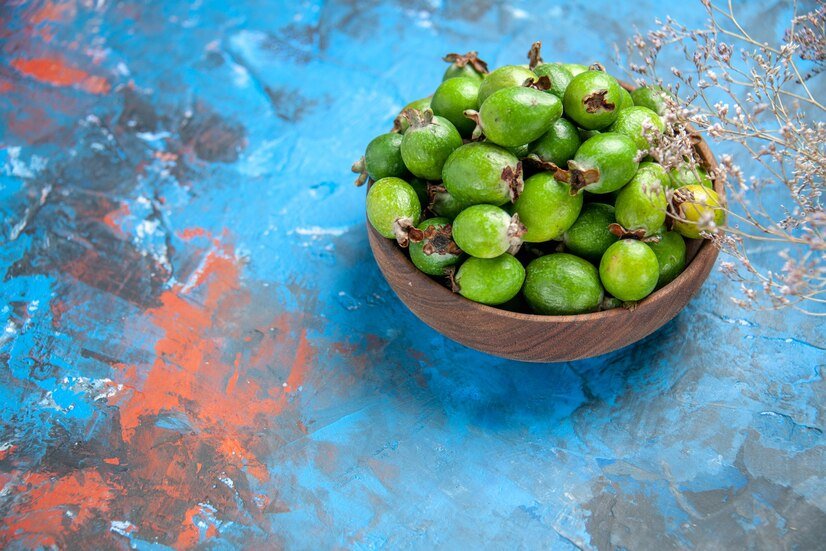
The Kakadu plum, also known as gubinge, is an Australian native fruit celebrated for its incredible vitamin C concentration—more than any other known natural source. It is small, green, and tart.
Health Benefits:
- Immensely boosts immune function.
- Acts as a potent antioxidant.
- Promotes healthy skin and collagen production.
This superfruit is often used in health supplements, jams, and as a flavor enhancer.
Kiwano (Horned Melon)
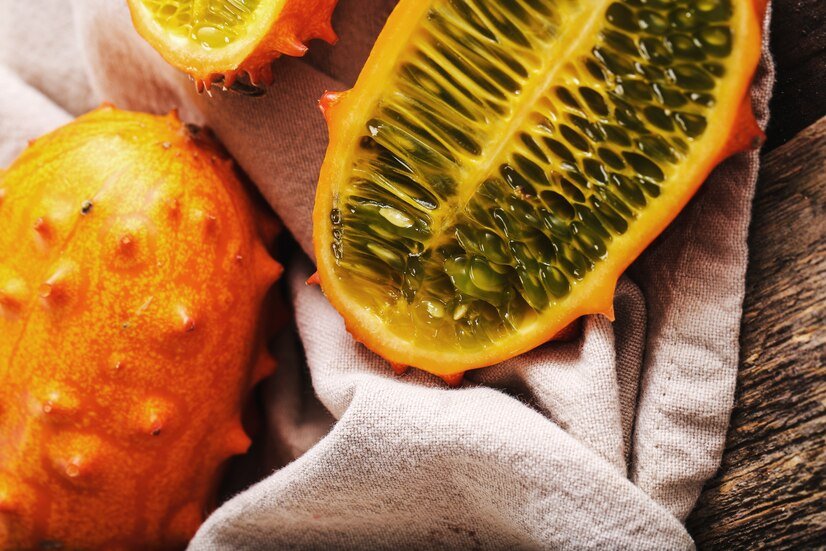
With its spiky orange skin and vibrant green flesh, kiwano, or horned melon, is a visually striking fruit. Native to Africa, its flavor is a mix of banana, cucumber, and lime.
Health Benefits:
- Hydrates the body with its high water content.
- Supports healthy skin with its antioxidants.
- Provides energy through its natural sugars.
Kola Nut

The kola nut, native to Africa, is known more for its use in beverages like cola than as a standalone fruit. It has a bitter taste but offers a stimulating effect due to its caffeine content.
Health Benefits:
- Acts as a natural stimulant.
- Enhances metabolism.
- Promotes mental alertness.
Traditionally, kola nuts are chewed or used in ceremonies, but they’re also ground for use in drinks and medicines.
Krishna Fig
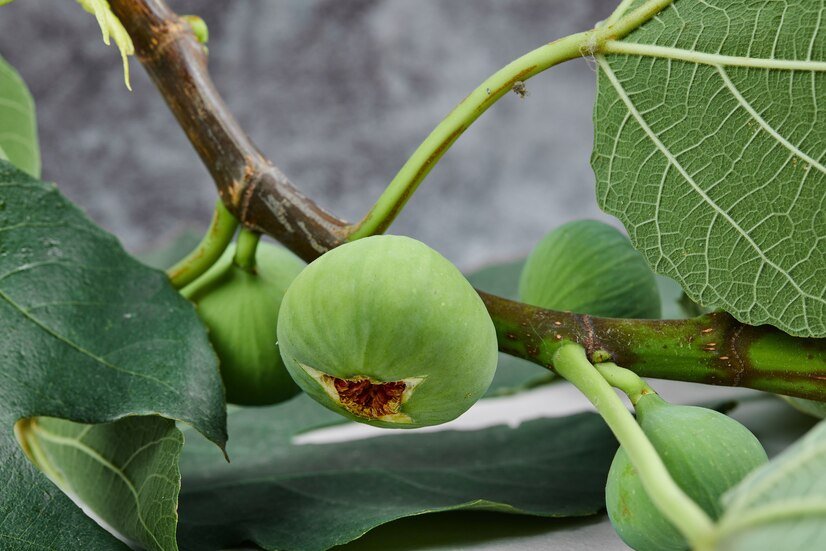
The Krishna fig, also known as black fig, is revered in Indian culture for its medicinal properties. Its dark purple skin and sweet flesh make it a favorite among fruit lovers.
Health Benefits:
- Supports digestive health with dietary fiber.
- Regulates blood sugar levels.
- Promotes heart health due to potassium.
Korlan

A lesser-known fruit, korlan is native to Southeast Asia and resembles a lychee. Its red, rough skin reveals juicy, translucent flesh with a sweet and sour taste.
Health Benefits:
- Provides vitamin C for a robust immune system.
- Contains antioxidants that fight free radicals.
- Offers a refreshing boost of hydration.
Learn more about Delicious Foods That Start with L
Why Choose Fruits That Start with K?
Adding fruits that start with K to your diet not only diversifies your palate but also contributes significantly to overall health. These fruits provide a wealth of nutrients, including vitamins, minerals, and antioxidants, which are essential for maintaining a balanced diet.
Easy Ways to Incorporate These Fruits:
- Add them to smoothies for a nutrient-packed drink.
- Use them as natural sweeteners in desserts.
- Enjoy them fresh or dried for a healthy snack option.
Conclusion
Exploring fruits that start with K opens up a world of flavors and health benefits. From the tangy zest of kaffir lime to the supercharged nutrients of Kakadu plum, these fruits cater to diverse tastes and needs. Including them in your diet not only enhances variety but also supports overall well-being. Whether enjoyed fresh, in recipes or as supplements, these fruits prove that the letter K offers more than meets the eye.
